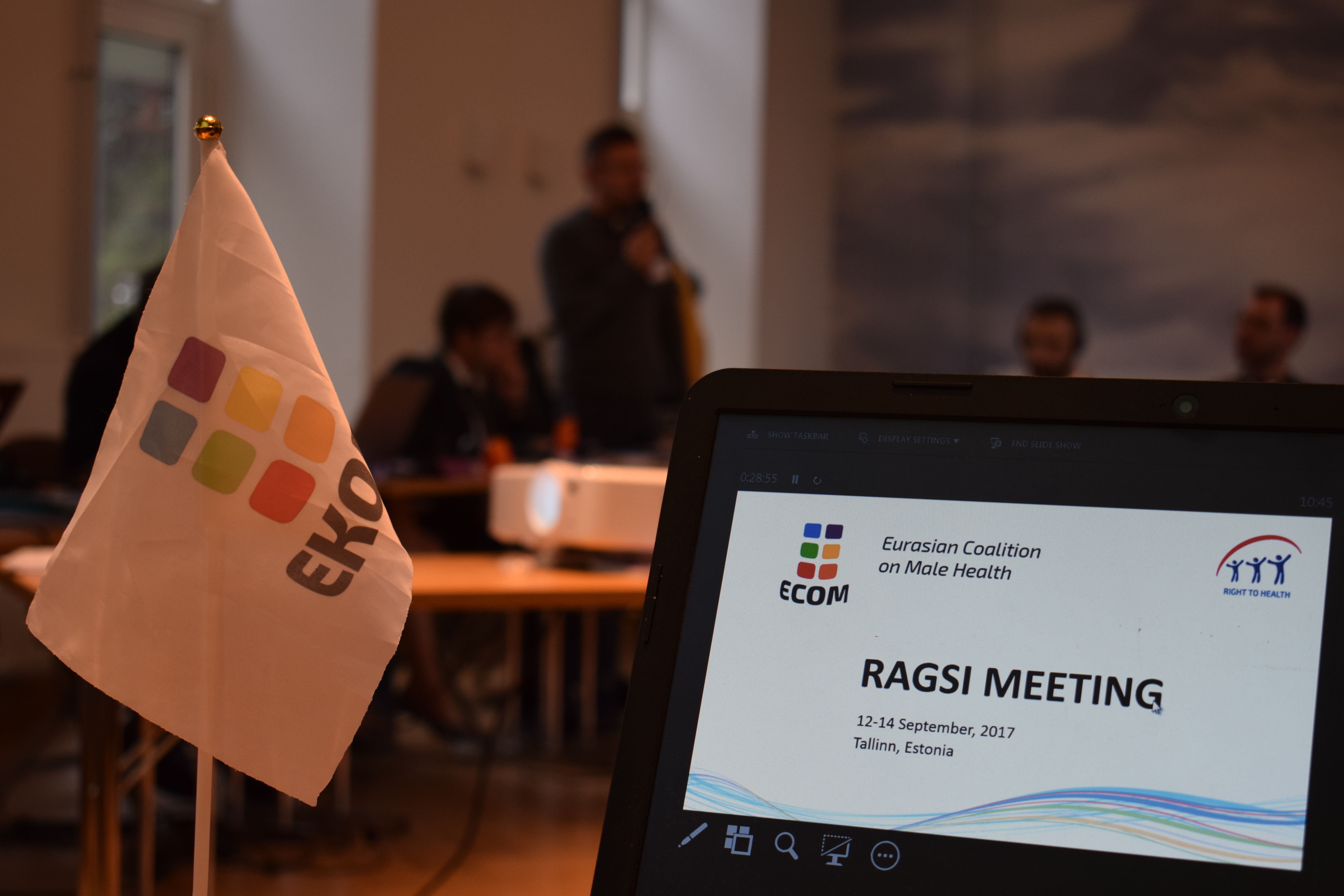
The meeting of Regional Advisory Group on Strategic Information (RAGSI), set up by the "Right to Health" ECOM project with the support of the Global Fund to Fight AIDS, Tuberculosis and Malaria, took place from 12 to 14 September 2017 in Tallinn.
For the first time a group of this kind is formed at the regional level. It's important that the representatives of government institutions of five main ECOM partner countries (Armenia, Belarus, Georgia, Kyrgyzstan and Macedonia), specialists from civil society organizations in the community and also experts from international charity founds and research institutions became a part of RAGSI as equals.
The main objectives of RAGSI are to assist the regular collection of strategic information necessary for providing a high-quality response to HIV among MSM and trans* people in Central and Eastern Europe and Central Asia (CEECA), to coordinate data collection and researches in the region conducted between various projects, to provide technical support in qualitative research data collection, to assist the capacity enhancement of organizations and communities in strategic data collection and to use these data, and also to develop recommendations.
Members of RAGSI got acquainted with the condition of the strategic epidemiological information concerning MSM and trans* people in CEECA, discussed the involvement of MSM and trans* people in decision-making and also the improvement of information available in the countries of the region.
Among the main recommendations made during the meeting were the following: to research the assessment of MSM and trans* people number with the close involvement of the community; to give the research results a wide circulation among public, governmental and international organizations; to involve the representatives of LGBT and MSM organizations in research planning and conducting; to increase analytical and research skills of LGBT and MSM organizations.
As emphasized by participants, one of weaknesses of these organizations is the low level of advocacy skills among LGBT and MSM non-governmental organizations and activists. To improve the exchange of knowledge and best practices in data collection and the use of it it's necessary to organize more round-table meetings, seminars, trainings, discussions involving communities, activists, NGOs, experts and government representatives.
Experts also noted that despite the fact that there is a number of studies concerning MSM in CEECA countries there is practically no research information about trans* people. RAGSI members also discussed the availability of the studies, the issue is that they are rarely translated from national languages into English and they are almost never published in peer-reviewed scientific journals which makes the access to information significantly more complicated for foreign experts.
Members of RAGSI saw the intermediate results of the studies which were conducted as a part of baseline assessment of the “Right to Health” program, namely "The attitude towards LGBT of key social services workers in five countries of the region", "Participation of MSM and trans* people in decision-making", "Internal homophobia in 13 countries of the region as a factor of access to services of MSM-service and LGBT organizations" and others.
During the meeting the representatives of international organizations shared their experiences and approaches to research involving gays, bisexuals and other MSM who could be useful in future activities.
"As a group facilitator, I am glad that all the participants of the meeting made a valuable contribution and helped RAGSI to develop and become more mature. The meeting was very intensive, interesting and, what is important, productive. It was important for the participants of the meeting to have an opportunity to get acquainted with each other", noted Sergo Chikhladze.
The creation of a working group on drafting guidelines to improve strategic data collection in five countries of the ECOM program was one of the most important results of the thematic meeting.
"It should be emphasized that we had an opportunity to exchange knowledge and the best practices of carrying out studies from Italy, Ukraine and also Estonia and UNDP", added Chikhladze.
It is expected that the work of the advisory group will enhance the quality of strategic information and also improve the conducted studies which are necessary for a well-timed response to the spread of HIV among MSM and trans* people in the countries of CEECA.
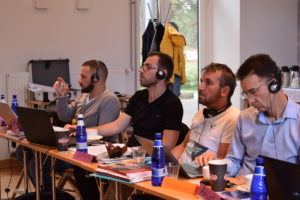
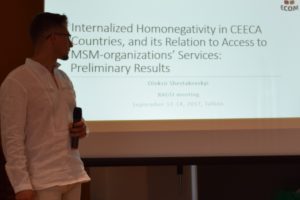
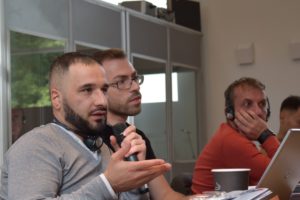
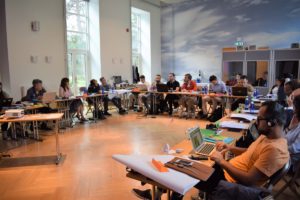
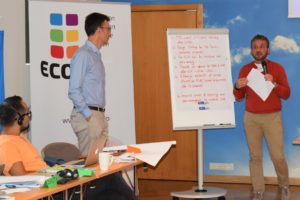
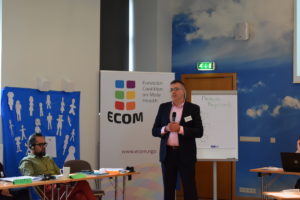
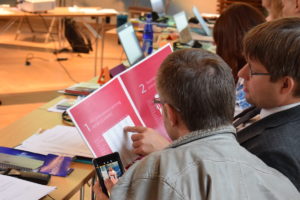
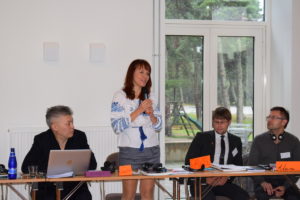
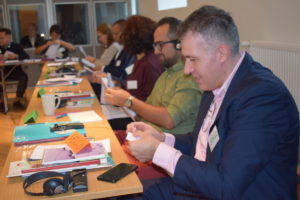
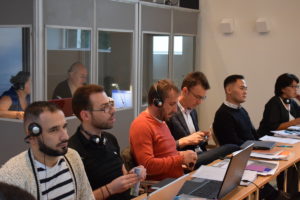
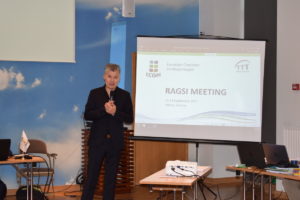



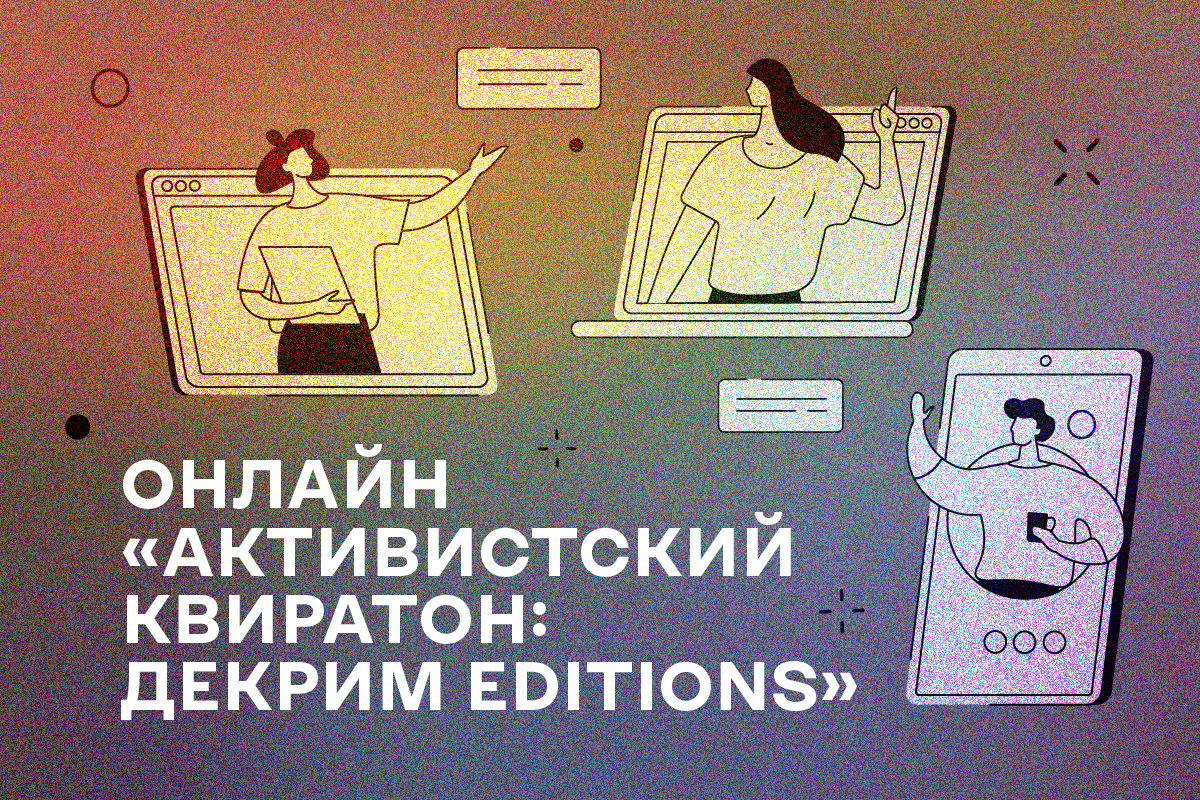
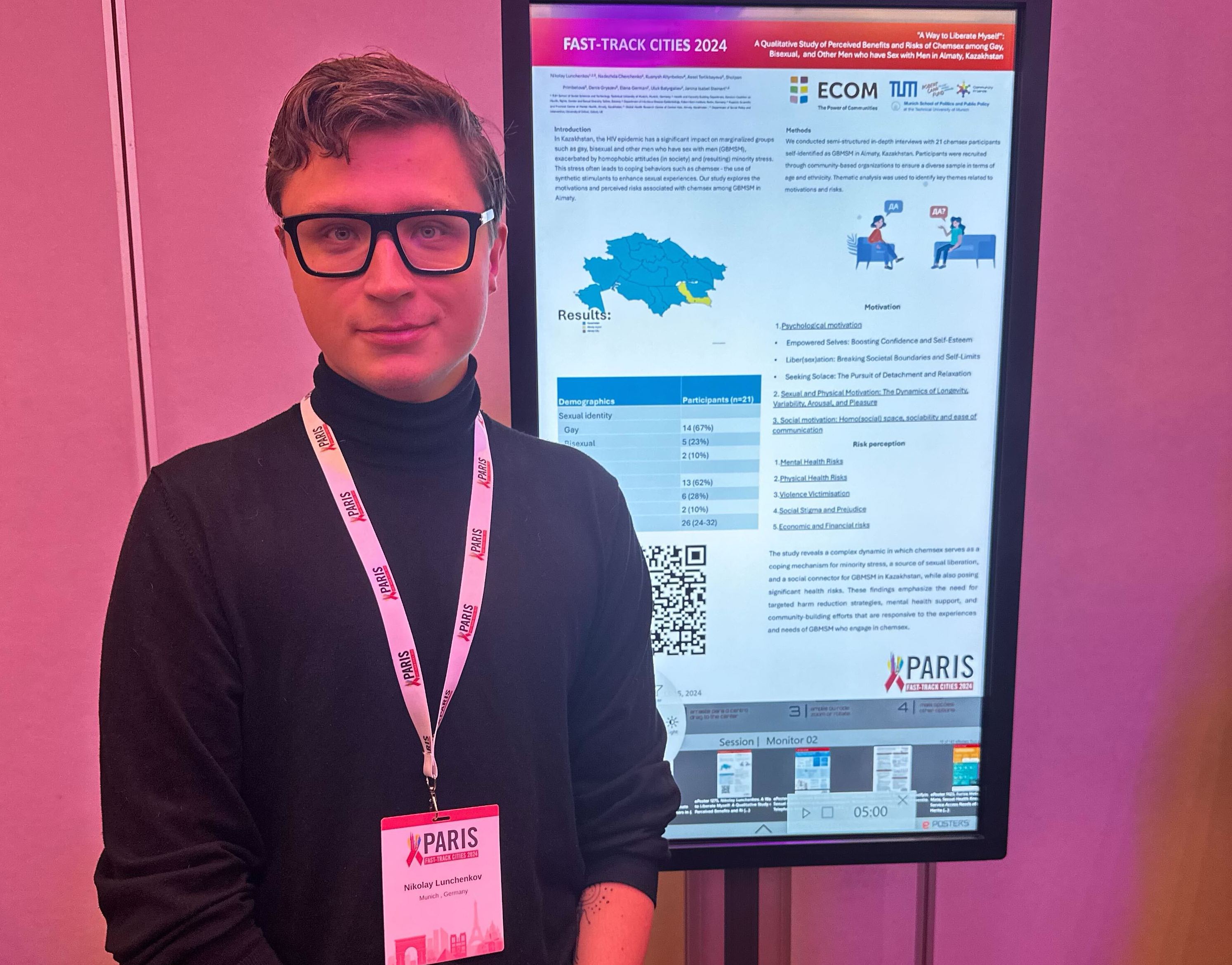
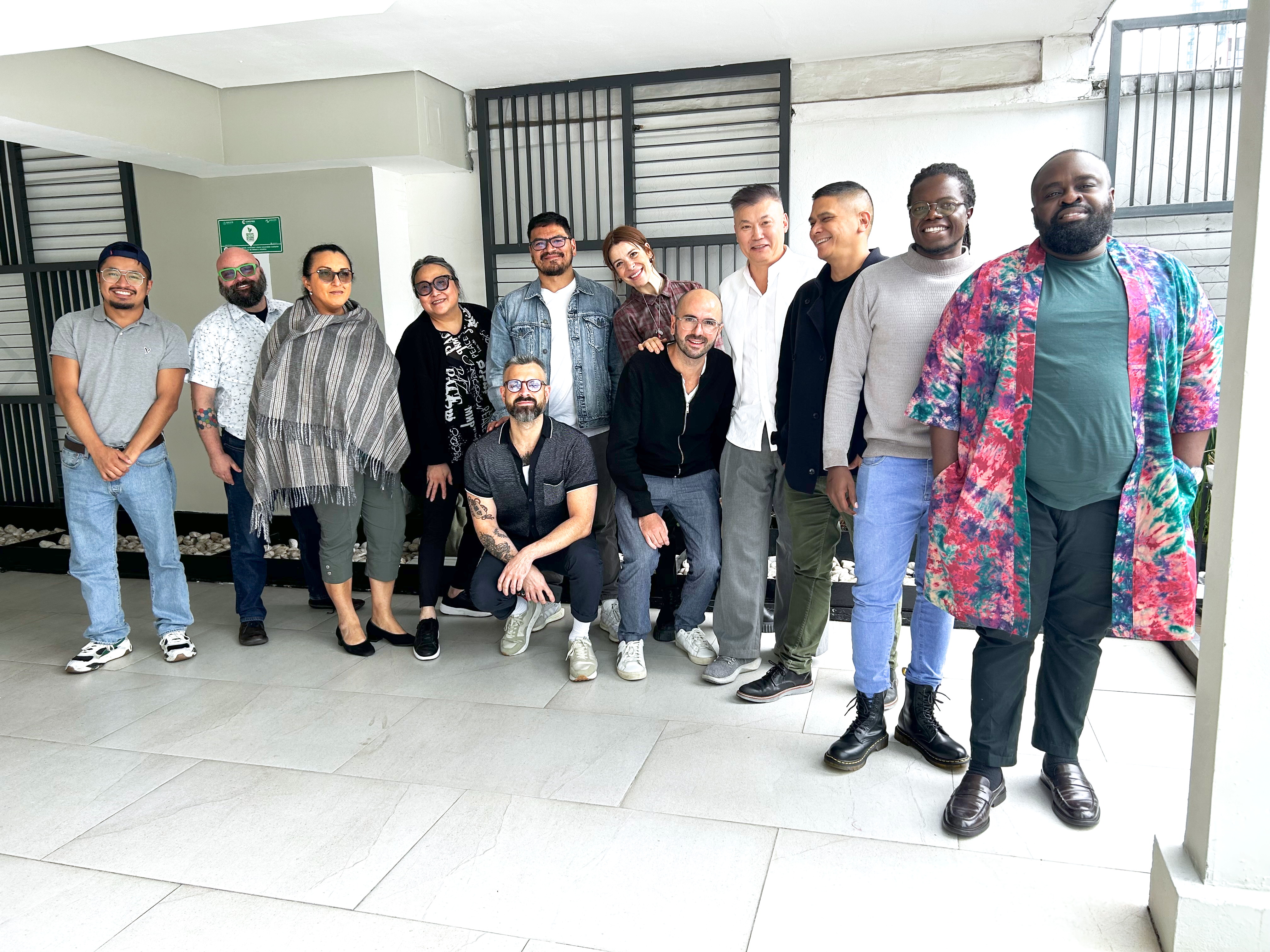
Комментарии
Пока никто не оставил комментарий